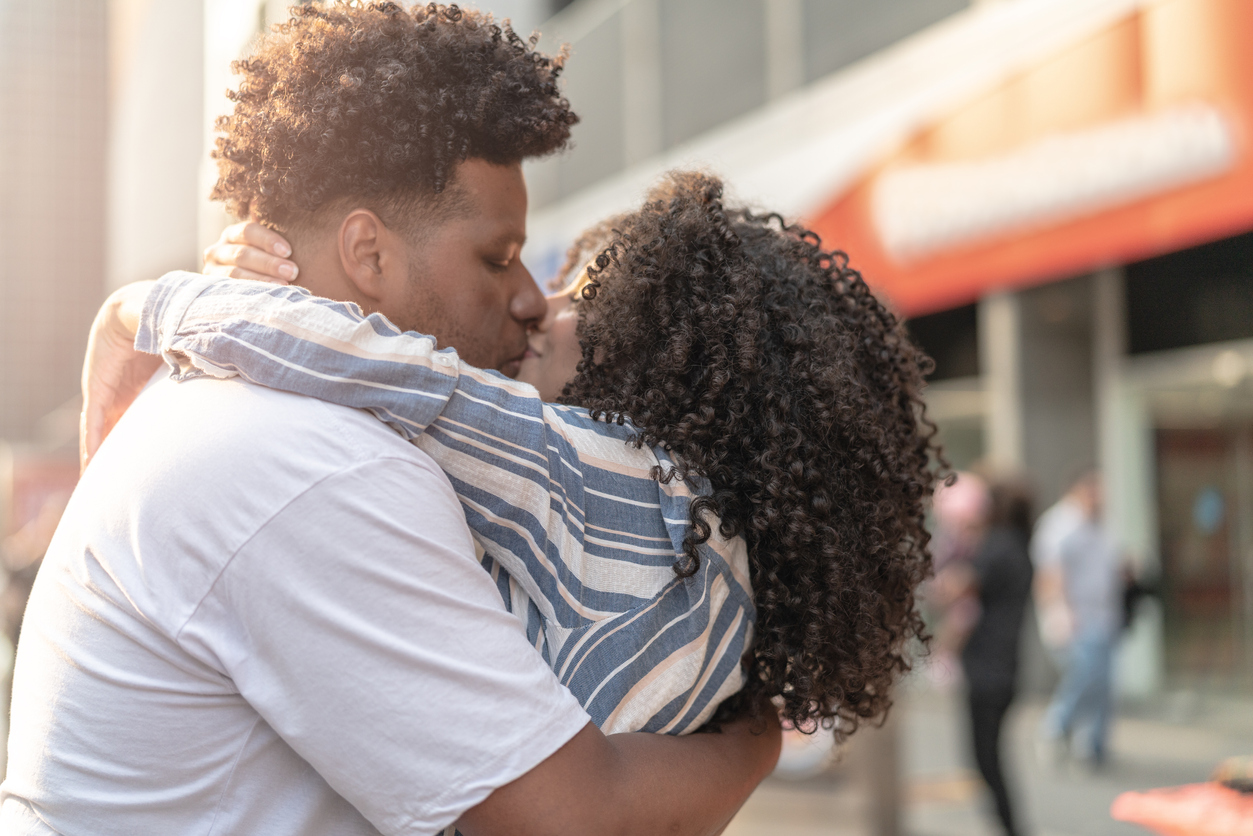
Source: FG Trade / Getty
For centuries, Black sexuality has either been ignored, hypersexualized, or subjected to rising rates of STDs and unplanned pregnancies. If women of color aren’t battling against historically horrific stereotypes and sexist double standards, they are fighting obscene notions that they aren’t physically attractive or marriage material.
Amidst all of the commotion that surrounds Black women’s sexuality, one important component seems to be absent from the conversation: How to live a pleasurable life filled with liberation, exploration, and, yes, masturbation. Witnessing and even experiencing the remarkable discrepancies in traditional sex education, two savvy sex educators, Rafaella Fiallo and Dalychia Saah, decided to take matters into their own hands. In 2015, they created Afrosexology, a pleasure-based educational platform that promotes self-agency, self-empowerment, and self-love.
We chatted with Fiallo and Saah about Afrosexology and how more women can embrace the movement.
MadameNoire (MN): What was the thought process behind Afrosexology?
Rafaella Fiallo (RF): “We just weren’t seeing conversations about pleasure in our communities. What we’re hearing is a lot of the negative stereotypes — high rates of STIs and STDs, unwanted or unplanned pregnancies, assaults. While all of that stuff is happening and there’s definitely a space for that, where is the conversation about liberation and sexuality? A lot of the people having those conversations are white women and white men, because they aren’t experiencing the same type of traumas and oppression that Black people are.”
MN: Speaking of oppression and societal differences, what are some of the unique challenges that Black women face when compared to other races?
RF: “So much of life [for Black people] is just trying to survive. We live in St. Louis where Mike Brown was killed and every day on the news, someone is getting murdered by the police. When we were first creating Afrosexology, we thought to ourselves, ‘Is this really the time to talk about sex and pleasure?’ But then we started putting together the pieces of how sexual liberation is linked to liberation in general and how it’s a direct opposition to oppression.”
During slavery, our bodies were not our own. We were used as capital, labor, their sexual pleasure, their exploration and their scientific studies. From very early, we were taught that we were disposable. Now society tells us that we need to be happy with where we are now, and that slavery was so long ago. We’ve really had to watch out for ourselves. Our challenges are different because our lives are different.
MN: Where do we begin when it comes to fighting sexual oppression?
Dalychia Saah (DS): “So much of what we teach focuses on communication skills, being an advocate and having a voice for yourself. We teach people about boundaries, not only in their sex lives, but in general. We also teach people to say yes to themselves more. Yes, in a sexual manner, but also in life. Many people struggle with self-care, centering themselves and doing things they enjoy. These teachings are just the starting points for our audience. We want them to apply these behaviors in relationships at work, in families, in the community and even in the government. Even though we’re talking about sex, it’s about us claiming agency over our entire lives.”
MN: When it comes to promoting self-agency and self-love, how do you recommend women prioritize their pleasure?
DS: “As women and as Black women, we are taught that men are going to save us. Even if you are queer, in all of the princess movies, the narrative is that you’re going to find the right man and that he is going to save you. From early on, we’re taught that sex is for them and that it’s not for us. Even in the way we replicate the belief, ‘He didn’t make me come’ or ‘They didn’t do that right’, again we’re looking for someone else to prioritize us, meanwhile we’re not prioritizing ourselves.”
“The number one thing Rafaella and I love talking about and that we tell everyone to do, if they want to, is masturbate. Masturbation teaches you that you don’t have to depend on anyone else for your pleasure or your power and it’s something that’s literally at your fingertips. Through masturbation, you become the expert of your body and you’re able to advocate for yourself in sexual experiences. You can inform someone on how you like to be pleased and if you’re in a situation where you’re not getting what you need, you can give yourself that pleasure.”
MN: Afrosexology’s mission is to educate, explore and reclaim Black sexuality. In what ways do you offer a safe space for women to learn and explore their sexuality?
RF: One of the first things we got into were the community workshops. We started off with our workshop called, “Exploring Your Erotic Black Self.” We began with that because we wanted to make sure everyone’s needs were met. A lot of times, even in sex positive communities, it’s always about how to be the freakiest or how to be in a polyamorous relationship. But there are a lot of people who are asexual, celibate or just trying to figure out their desires. We want make sure that we are honoring all the experiences of Black people.
“When we talk about exploring your erotic self, we’re talking about really engaging your erotic senses. Find the things that feel good, sound good, taste good and feel food. When you understand what turns you on, you also understand what puts you in a better mood. Then you can incorporate those things into a more sensual, more open sexual experience. It’s all about helping people get out of their mind and get into their body to help them discover what makes them feel good, what turns them on and also affirm that they deserve this.”









